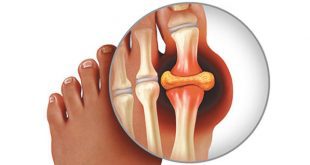

Bayfront Health’s surgeons offer colon and rectal surgery, including minimally invasive techniques, to treat colorectal conditions. The surgeons work closely with gastroenterologists and other specialists to provide comprehensive and supportive care for colorectal diseases.
Marian Malafarina, MS, APRN, FNP-C., GI Nurse Navigator at Bayfront Health Port Charlotte shared with us, “March is National Colorectal Cancer Awareness month, and our hospital along with Dr. Galliano (Board Certified Colorectal Surgeon) just recently received National recognition as a Colorectal Surgery Center of Excellence from Surgical Review Corporation (SRC). We are very honored by this recognition.
“Under the Colorectal Surgery Center of Excellence, our physicians not only provide great surgical solutions, but focus heavily on prevention and provide screenings for colon cancer, rectal, and anal cancers. According to the American Cancer Society, anal cancer, even though rare, has been on the rise over the past several years, and it affects more women than men. The risk groups for anal cancer include people with HPV infection, previous cervical cancer, immune-compromised, organ transplant patients, and people with HIV/AIDS (American Cancer Society, 2019).”
In the state of Florida, Bayfront Health Port Charlotte is the first to have attained accreditation as a Center of Excellence in Colorectal Surgery by Surgical Review Corporation (SRC). A Center of Excellence in Colorectal Surgery accreditation sets Bayfront Health Port Charlotte apart recognizing them as the elite facility that provides superior care to their patients. Bayfront Health Port Charlotte is also the first facility in the county to provide a diagnostic test for constipation to find the cause and determine the best course of treatment.
Not all facilities or surgeons want to undertake the scrupulous inspections because many do not pass the review. The status as an accredited Center of Excellence in Colorectal Surgery means Bayfront Health Port Charlotte along with board-certified colon and rectal surgeon Domingo Galliano, Jr., M.D., FACS, FASCRS, have undergone meticulous onsite inspections and they have met nationally recognized standards.
Excellence in Colorectal Surgery accreditation sets Bayfront Health Port Charlotte apart recognizing them as the elite facility that provides superior care to their patients. Bayfront Health Port Charlotte is also the first facility in the county to provide a diagnostic test for constipation to find the cause and determine the best course of treatment.
Not all facilities or surgeons want to undertake the scrupulous inspections because many do not pass the review. The status as an accredited Center of Excellence in Colorectal Surgery means Bayfront Health Port Charlotte along with board-certified colon and rectal surgeon Domingo Galliano, Jr., M.D., FACS, FASCRS, have undergone meticulous onsite inspections and they have met nationally recognized standards.
“I enjoy working with this team at Bayfront Health Port Charlotte,” said Domingo Galliano, Jr., M.D., FACS, FASCRS. “This achievement demonstrates Bayfront’s exemplary commitment to quality improvement and patient safety. It is an honor and privilege to be a part of this.”
Colon Cancer Awareness
Colon polyps go unnoticed most of the time, affecting upwards of 200,000 people a year. Polyps are cell growths on the lining of the colon or large intestine. There are diagnostic tests through lab work and imaging that can detect these polyps. If you have them, it’s best to have them removed.
Polyps don’t turn cancerous in every case, but your risk of developing cancer increases with the number and size of colon polyps you have.
When they do turn cancerous, polyp cells divide and proliferate quickly within the colon and rectum.
Although the symptoms are not always prevalent in the beginning stages, some of the symptoms are constipation, abdominal bloating, abdominal pain, excessive gas, diarrhea, bloody stools, narrow stools, weight loss, vomiting, nausea, and fatigue.
Dr. Galliano stated, “The alarming risk factors for colon cancer are abdominal pain, bleeding, and severe constipation. If you have those, it’s imperative to seek medical attention. If you have a family history of colon cancer, it’s generally recommended that you start getting colonoscopies ten years prior to the age when family member was diagnosed. In some instances, we’d like to see patients even earlier; it depends on their history, health, and overall risk factors.”
Dr. Galliano is a highly-sought after surgeon. Accordingly, he is the most experienced Board Certified Colorectal Surgeon with Da Vinci Robotic Surgery in Lee, Charlotte, Sarasota, and De Soto Counties. He has performed over 800 DaVinci Robotic procedures.
Screenings Save Lives
It’s imperative to talk to your physician about protecting yourself and your loved ones who may be at risk for colorectal cancer. Getting a colonoscopy screening is critical for adults with risk factors or over the age of 45. A colonoscopy is an easy procedure and one that can save your life. When polyps are discovered, they can be removed surgically during a colonoscopy or a sigmoidoscopy. If cancerous, chemotherapy or radiation is usually unnecessary as a secondary treatment if caught early on. It’s always best to be proactive in your colon health, rather than waiting and finding that the cancerous polyps have grown and spread into other organs.
Diet
There are specific risk factors that are often associated with colon cancer. Dietary changes can resolve some of those. For instance, if you eat a lot of red meat and saturated fats, and very little fresh fruits and vegetables, you are at a higher risk of developing colorectal cancer. Some of the other risks associated with this type of cancer are, being over the age of 45, having a family history of polyps or colon cancer, smoking, being overweight, having Crohn’s disease or ulcerative colitis, and women that have had breast, uterine or ovarian cancer are at a higher risk as well.
Sovi Joseph, MD, Board Certified Gastroenterologist with Bayfront Health Port Charlotte explained. “Even though to a large extent, there are multiple ways to prevent colorectal cancer, there is still a significant number of patients diagnosed with the disease. From my standpoint and that of my gastroenterology group, prevention and screenings are critical.
“Preventative measures can be somewhat confusing, but for the most part, dietary, lifestyle, risk factors (to a varying degree) all are important for lessening colorectal cancer risk. The microbiome in the gut can and should be modified. We can do that with high fiber foods such as vegetables, fruits, and seeds, along with pre and probiotics. It’s also important to add fish oil supplements or to eat fatty fish to increase the Omega 3-fatty acids in the cells and colon. Fish oil has an anti-inflammatory effect and also improves immune function.
“Many people are unaware of the benefit of drinking coffee as a way to inhibit colon cancer and improve colon health, but there are numerous studies on the effectiveness of this. I don’t advocate any one specific diet, but I believe it’s a common-sense approach to eating fresh, whole foods as much as possible and avoiding refined sugars.
“With colonoscopies, we can diagnose quite reliably and prevent cancer from happening if we find polyps. About 90% of polyps will turn into cancer, so removing them early is key. It’s important the people understand the difference between the reliability of a colonoscopy and the substitutes like the highly advertised at home testing kit. The at home tests are expensive and have an extremely high false positive rate. It’s marketing overkill. You can rest assured that having a high-quality colonoscopy is the best way to detect polyps or cancer, and you only need it every ten years (if yours comes back negative). Prevention and screenings are of the utmost importance.”
Bayfront Health Port Charlotte’s Comprehensive Colorectal Treatment Services Include:
• Colorectal cancer
• Polyps
• Colon motility issues
• Diverticular disease
• Hemorrhoids
• Fissures and fistulas
• Inflammatory Bowel Disease
• Fecal Incontinence
Screenings and Diagnostic Testing Includes:
• Colonoscopies
• Defecography – for constipation, colon motility
issues, pelvic floor issues.
• High Resolution Anoscopy (HRI) – for anal
cancer screenings.
If you or someone you know has risk factors, symptoms or needs a colonoscopy, please contact Bayfront Health Port Charlotte today.
Call 941-766-4504 to speak with our GI Nurse Navigator or visit http://bit.ly/LoveUrColon.
Bayfront Health Port Charlotte
941-766-4504
2500 Harbor Blvd, Port Charlotte, FL 33952
Bayfront Health Accepts most Major Insurance Plans
 Southwest Florida's Health and Wellness Magazine Health and Wellness Articles
Southwest Florida's Health and Wellness Magazine Health and Wellness Articles

